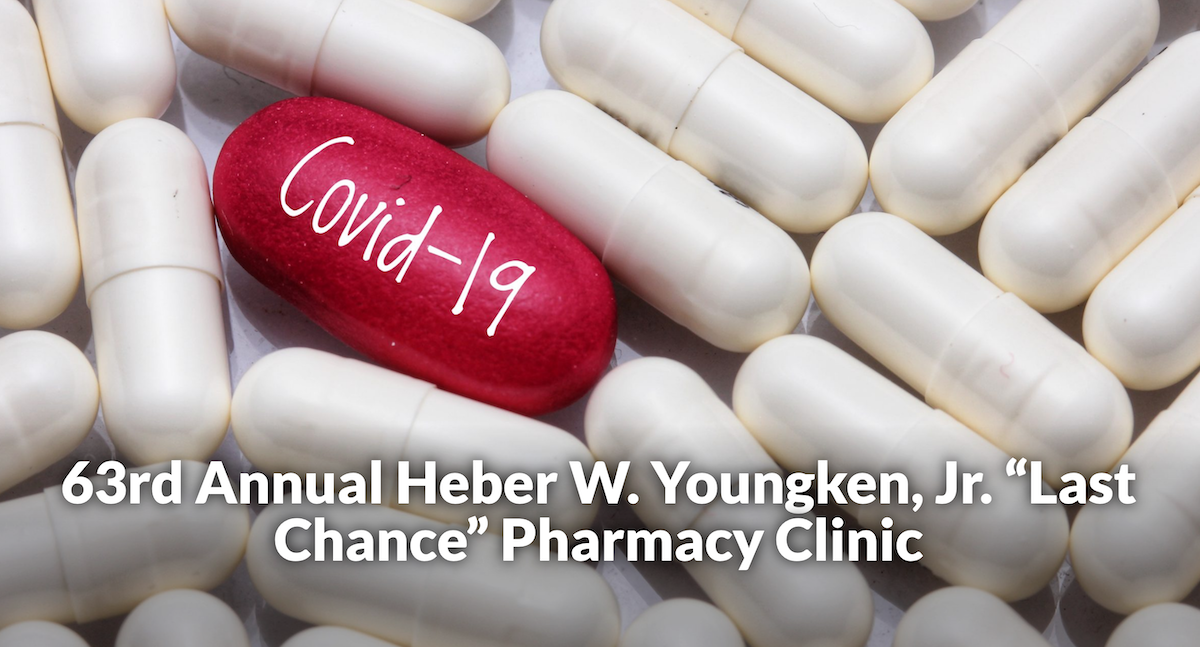The educational event tackling pressing issues affecting the profession will be held virtually due to COVID-19
The University of Rhode Island College of Pharmacy will present its Heber W. Youngken, Jr. Pharmacy Clinic on Nov. 5, offering pharmacists and pharmacy technicians one last chance to secure valuable continuing education credits before the end of the year.
Due to the ongoing COVID-19 pandemic, the clinic will be presented virtually for the first time in its 63 years. The event, hosted by the URI Office of Continuing Education for the Health Professions, will be held online in real time, featuring presentations by some of the area’s leading experts in pharmaceutical science.
Register for the 63rd annual Heber W. Youngken, Jr. Clinic here
In addition to insightful discussions and lectures on some of the key pharmaceutical issues facing the profession today — including the impact of COVID-19 on immunizations, treating patients who use illicit drugs, updates on anticoagulation, and more — the program will offer five live contact hours of continuing pharmacy education credit, one hour of Pharmacy Law CE and one hour of Immunization CE. The educational program will be held online Nov. 5, 8 a.m. – 2:30 p.m. Detailed instructions for logging into the live online meeting will be emailed to all registrants. Registered attendees will also receive an invitation to our virtual exhibit hall and to a URI Alumni and Friends virtual happy hour.
Presenters include some of the leading local voices in the pharmaceutical sciences industry, including URI College of Pharmacy professors, pharmacy specialists from Rhode Island Hospital, and officials from the state Department of Health. URI Pharmacy Dean Paul Larrat will present annual scholarships awarded to current URI pharmacy students.
Learning Objectives – Pharmacists
Upon completion of this educational activity, pharmacists will be able to:
- Evaluate harm reduction interventions for patients who use drugs
- Articulate the effect of person-centered language on the care of patients who use drugs
- Explain the difference between substance use and substance use disorder
- Discuss epidemiology and impact of SARS-CoV-2 in Rhode Island
- Identify approaches to addressing SARS-CoV-2 transmission in Ambulatory Care Settings
- Explain the role of pharmacy in the management of SARS-CoV-2
- Describe anticoagulant use in patients with COVID-19
- Discuss dosing of direct oral anticoagulants in special populations
- Summarize the role of direct oral anticoagulants in patients with thrombophilias.
Learning Objectives – Pharmacy Technicians
Upon completion of this educational activity, pharmacy technicians will be able to:
- Explain the difference between substance use and substance use disorder
- Discuss epidemiology and impact of SARS-CoV-2 in Rhode Island
- Identify approaches to addressing SARS-CoV-2 transmission in Ambulatory Care Settings
- Explain the role of pharmacy in the management of SARS-CoV-2
- Describe anticoagulant use in patients with COVID-19

